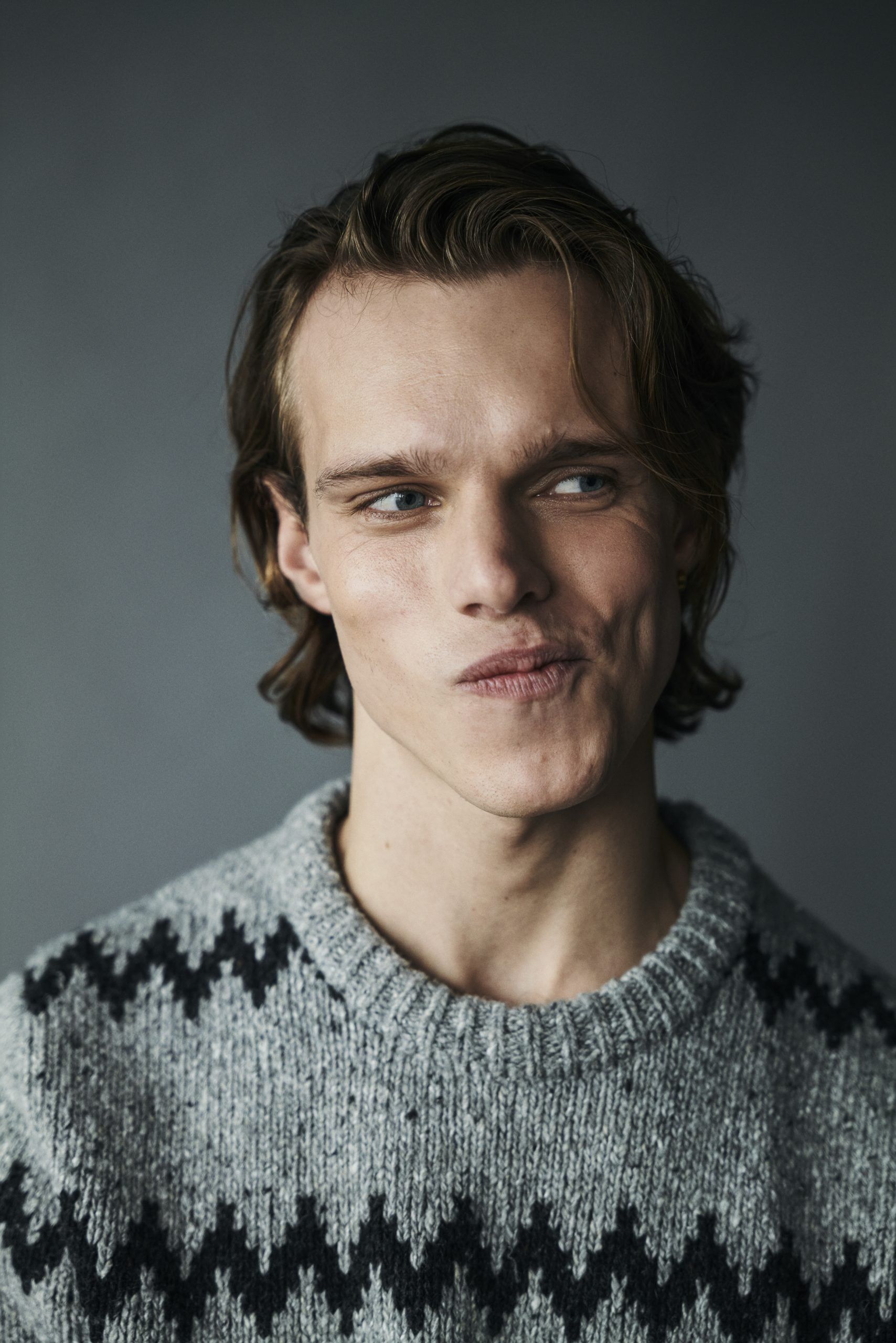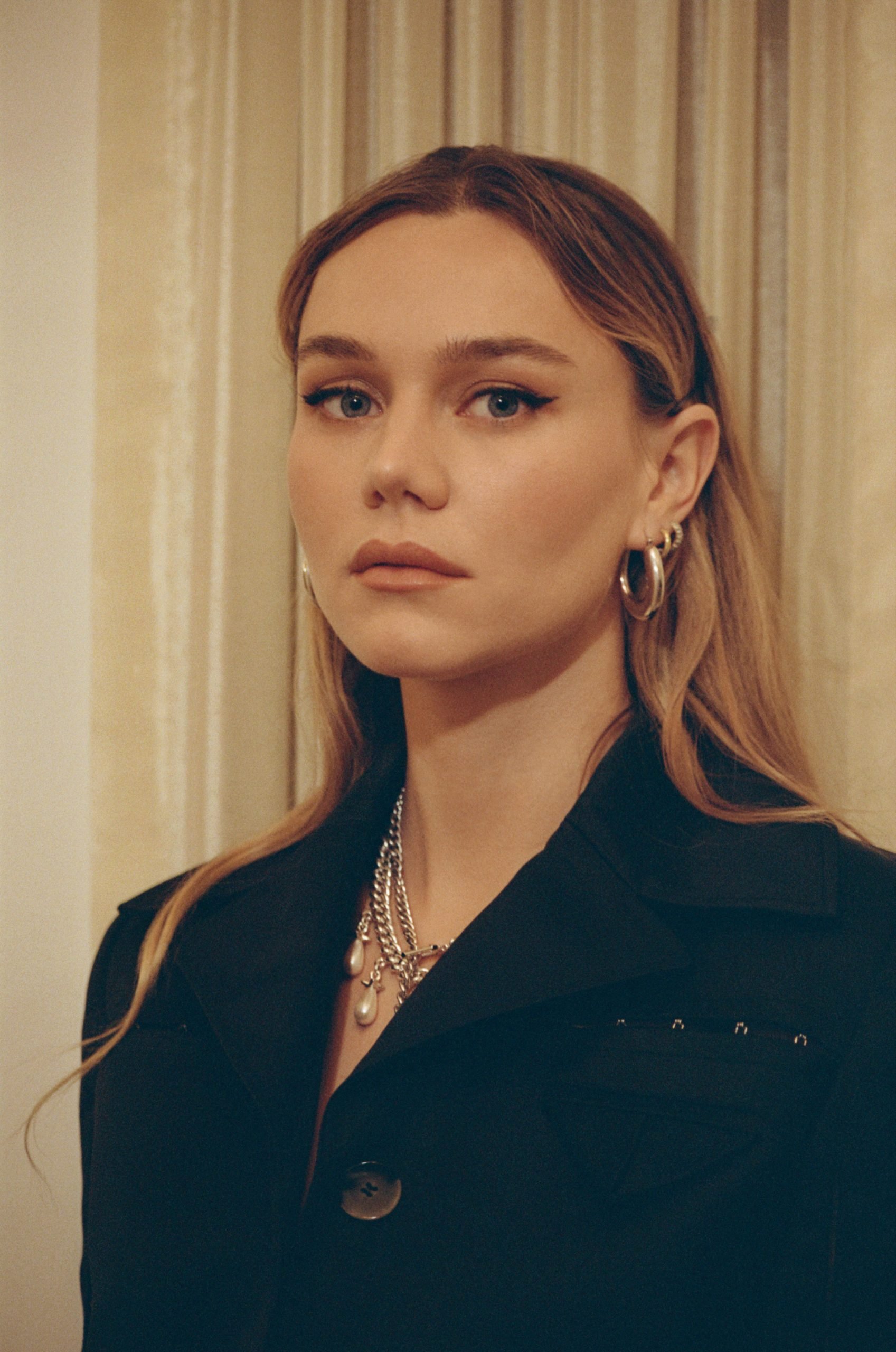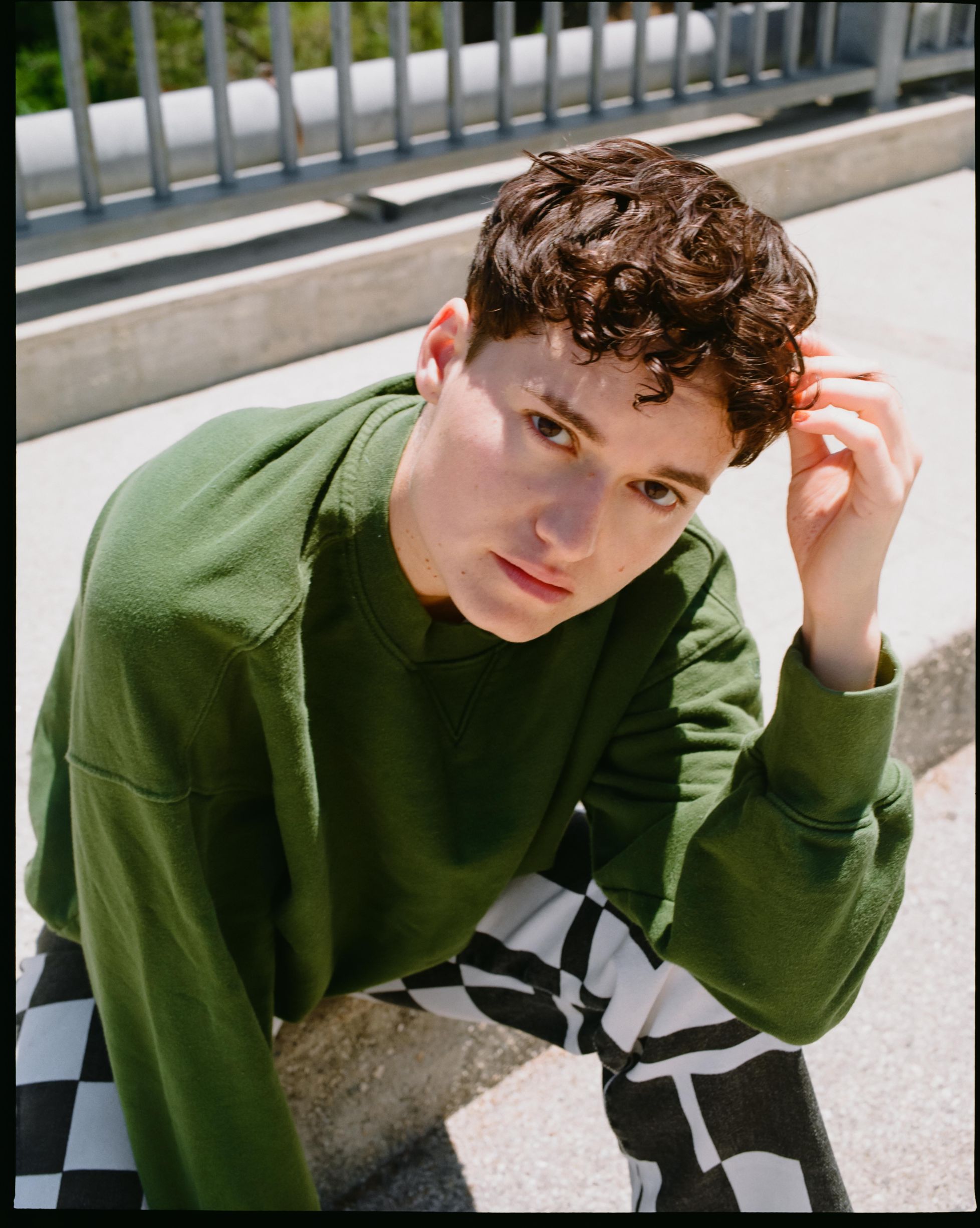
Lío Mehiel
Lío Mehiel’s breakout role in MUTT is proof they are a multidisciplinary actor that is one to watch.
A Puerto Rican and Greek transmasculine artist, filmmaker, and actor, everything Lío Mehiel does is to explore the connection between creativity and expression. Beginning their career as a professional salsa dancer and child actor on Broadway, after graduating from Northwestern University Mehiel returned to their home in New York to pursue a career in film. A few years later, at the start of 2023, they’d become the first trans actor to win the Special Jury Award for Best Acting at the Sundance Film Festival for their stunning lead performance in MUTT.
The film serves as a loose insight into writer/director Vuk Lungulov-Klotz’s own upbringing growing up as a transgender person. Following a sprawling 24 hours in New York City, Lío Mehiel’s character Feña grapples with three people — his father, his straight ex-boyfriend, and his estranged younger half-sister — all return to his life. It’s a project that paints the portrait into one trans experience, but does so with a deft and caring touch. Although Feña deals with everything from being dead-named at the bank and feeling rejected, there is joy, too, in the friendships and bonds that he’s created in his new life. On trans day of visibility last year, Mehiel posted an Instagram where they said they couldn’t imagine how different their life would be if they had seen a single person like them growing up. With the release of MUTT, they are doing just that for others.
When chatting with 1883 Magazine, Lío Mehiel has just returned to their sunshine-filled apartment in Los Angeles, a space where, in their words, makes them feel “really peaceful.” They discuss their role in MUTT, finding a newfound appreciation for Taylor Swift, and more.
I listened to your alumni chat with Northwestern from 2 years ago — you had just moved to LA and were focused on building a community and creating art. When you look back at the past two years, how have you been able to do those things?
It’s a new lifetime, it feels like I’ve jumped timelines. Two years ago, when I moved into this apartment, I hadn’t had top surgery yet, which was a really beautiful, powerful, affirming experience for me. I hadn’t really entered into the artistic community in LA because I had just gotten here.
Now two years later, while it is actually still a little hard to meet people in LA compared to New York, it’s such a different city. I feel a lot more integrated into the pace of life here. I go on walks every day. I sit outside in the morning and read, there’s a different rhythm of life that I’ve found through living here. I think it feeds me creatively and spiritually differently than in New York. There I have this drive to be outside all the time — morning coffee shop, lunch, meeting, session, dinner, meeting lunch, work session, cocktail. It’s just go, go, go.
Being in LA has really transformed my relationship to my daily rhythm and it has allowed me to write and dream a lot more because there’s something a little bit more spacious here for me. It really is a different situation, which is actually cool to reflect on now that I’m prompted to do that.
It’s cool to look at life like chapters in a way. In that podcast you mention moving to New York whereas mostly everyone moved to LA or stayed in Chicago. Was that a difficult thing to choose to do, knowing that you’d have to build your own community there?
I think a lot of people have experienced this, but when I first graduated from Northwestern I felt really alone for at least a year. You enjoy summer because you’re just fucking around enjoying life and having the last “summer vacation” you’ll have. But after I graduated from college and those first six months, I was lonely in an existential way because I didn’t know how to become a professional. Northwestern is a fantastic school with an amazing arts program, but most arts programs don’t really teach you how to become a professional. They teach you how to develop your craft within the structure of academia. So, all of a sudden, there was no boundary, no prompts, no invitation for me to sort of build a structure in my life. I had to do that for myself. I got a job to make money, but that wasn’t me starting to build my career.
The existential crisis was around how do I start to build my career in New York. I’m a really collaborative person and someone who likes to be in community, even if it’s just encouraging each other on our individual projects. I want to be in conversation because it’s through conversation with my contemporaries that I feel inspired and driven to share my perspective on the world. I can’t do that in a silo. So it was just hard for me to start things off, but New York City is such an amazing city to live in. I went to so many free workshops, panels, networking events, from things in the film space, the theatre space, but then also in the virtual reality and creative technology space. It was like this space where I can meet and talk to people who are older than me and sort of ask them how they spend their days and learn from them. That is what you need as an artist in order to participate. You need some kind of process.
School is interesting because, in the best way sometimes, it’s a forced community. You have these things readily at your disposal because you’re all there in the same space pursuing similar things.
Yeah, and I didn’t totally have to start in LA. My writing partner and creative partner is here. From the time we were graduating until the time I moved here they kept saying “Bro, you have to move to LA!” And I would kep saying “Bro, I don’t know, I don’t know that many people there, my family’s in New York or so.” But then the pandemic hit, and like many people, I went through a breakup. I felt like I could maybe make moves then. So coming to LA I had her here at least, and also an understanding that if I was really wanting to get serious about film, people said LA was the center of it. Now that I’m actually here, I don’t know that. I agree. I actually think that there is a certain kind of filmmaking and film industry that’s here. It’s the studios, it’s the bigger Hollywood type of filmmaking, but the really smart, badass indie filmmakers I know are in New York.
It was the middle of 2022 when you started filming MUTT and you returned to New York to film and you were almost like a new person. What was it like revisiting it following your LA move?
I think my gender transition is always marking time for me. For me as an artist, I always use my own personal experience as a jumping off point. My relationship to who I am in the world and how I relate to my body has always been the starting point for whatever it is I’m making and creating. Going back to New York, I was a different person so I had a completely different relationship to my creative practice and that includes acting.
When I went back to New York, it was to shoot but it was cool. I felt like I had matured a certain amount, but I was also returning home to go through this final maturation process. I hadn’t yet been given the opportunity to be a lead character in a feature film and really sort of exercise my chops as an actor on screen, so this was me saying “okay, I’ve been an actor for a long time. I know I can do this.” I’d been doing it at a scale where it’s short films or plays and you know, I was on Broadway as a kid. I’ve never been given this kind of opportunity. The fact that I got to do it in a neighbourhood that I had lived in for six years and spent such formative years in… It felt both safe but also very intimate, exciting and empowering.
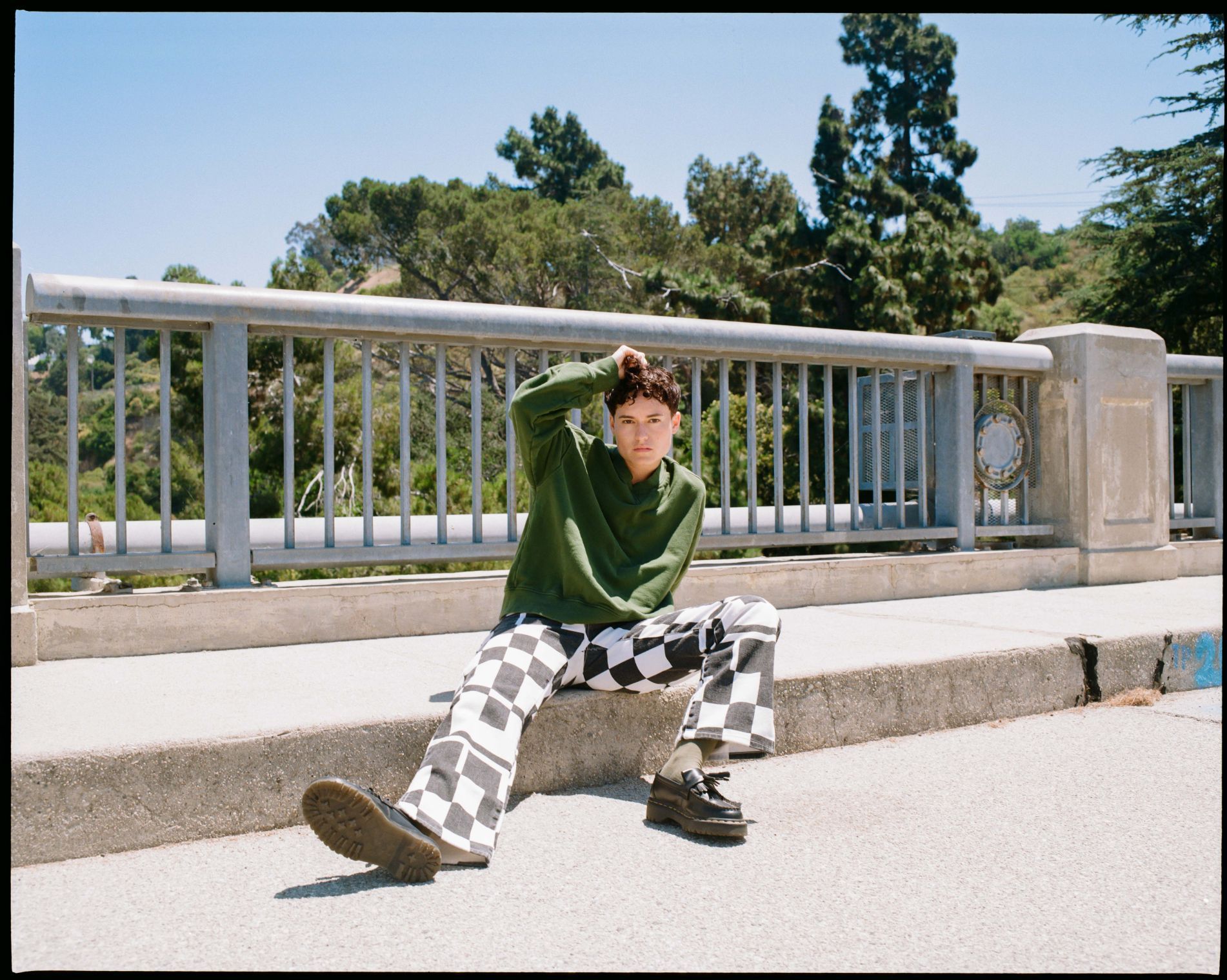
One of my favourite scenes is the one at the gas station where Feña says to his father “If you don’t want to understand me, that’s fine but do not tell me not to be myself, i get enough of that from the rest of the world.” I know you’ve said the laundromat scene is your favourite to film, but is there one that, when looking back post-filming, one that resonated with you now that might not have before?
A fair question. It’s funny because it’s a film that takes place over 24 hours. It’s really condensed emotionally. There are so many important emotional scenes, because there are also these three relationships that we are following so we have to pack in a lot into a short amount of time. I can list like six scenes that I think are so moving.
Well, it’s funny that you even say that because I was wondering what it was like to keep the same type of headspace that Feña is in since it is over the course of 24 hours.
Yeah, a weird coincidence is that we shot for 24 days and I love that shit. It was such a small movie, with a small team, low budget in New York City. You know? Running around the city with over 37 locations. We were running around all the time. There was this organic energy that matches the energy of the actual film, which is let’s go, let’s go, let’s go. We have a deadline, pick up the sand bags, and throw them in the truck. It’s not like most films where you’re in a trailer away from the crew. It was all of us working together to bring this vision to reality. It was racing against the clock which I think just matches the film.
Feña is so integrated into this Bushwick community of him and his friends taking care of each other and shit is going wrong and he’s like calling this friend and that friend for help. For me, I think it was a gift that it took place over 24 hours because it allowed me to focus on one state of mind. I was basically in every shot of the film and because it’s my first feature it was helpful that I just could sink into the moment. I didn’t have to do the extra work of time jumping or whatever. The ask and the invitation and the gift of this movie is for me to show up and be completely present. In a way for my first feature, that’s such a gift because then it’s just me exercising my presence and getting really good at doing that and being in that space in front of the camera.
Knowing what you do about his arc over the film, if you could give Feña a piece of advice from you, what would it be?
That is such a beautiful question. I think a piece of advice I would give to both Feña and also other trans people I know — not every trans person because this is not a monolith — but there are some trans people in my life that I think could also use this advice, which is: what happens if you assume that people love you? Feña has had a really hard life. He was a child of abuse. He’s had to take care of himself from a young age. His life has taught him to not be trusting of the people around him and to protect himself to the point where he pushes people away. Many trans people and queer people, unfortunately, have had a similar storyline in their life, and that causes a person rightly so to be a bit more defensive to the world.
I think through making this movie, watching his journey, and talking a lot about the trans experience through the sharing of this film, I’ve come to realize there is healing to be had if more trans people can take the risk of “I am lovable.” That starts with loving yourself, but also trusting that you can be loved by other people. Again, that’s a risk and a privilege that many people have not had. But now that if you’re an adult, the invitation is to begin again for yourself. That’s what I want for Feña and I think he gets there in a way by the end after the conversation with his father and his dynamic with his sister, where he’s realizing they just want to connect with him. He realizes he has been keeping this wall up.
On an entirely different topic, I saw on Instagram you went to see Taylor Swift and you had a bit of a spiritual moment and mentioned the movement of love and your hope to “release all resistance to receiving love.” I’d love to chat about that because I found what you said to be quite moving.
I was not a huge Taylor Swift fan going into that experience, I knew a few songs here and there. But there was this moment in the concert where she allowed the audience to cheer and scream uninterrupted. It went on for 13 uninterrupted minutes and it wasn’t in a way of her feeling idolized. Instead, it was about her standing there letting the love — that screaming, cheering and the exuberance — wash over her. And because she had no resistance to receiving it, she was just accepting it and enjoying it. It flowed back out through her and then gave the audience permission to love even more. I wasn’t screaming during this period, I was looking around at this anthropological event that was happening and watching these people who perhaps don’t get the opportunity to shake their bodies and do this every day.
That is what is euphoric about this whole thing. They’re being given permission to do that without feeling shame, or without feeling. If Taylor had a modicum of shame from receiving that love or embarrassment or guilt or bashfulness, that then gets projected back onto us and then we can’t love as hard. That cycle was totally pure and uninterrupted. It blew my mind and has become my mantra for life. I want to have no resistance to receiving love because all that does is let people love and it has nothing to do with me in a way. I just want to be an agent of love. So, in order to do that, I can’t be ashamed about receiving it.
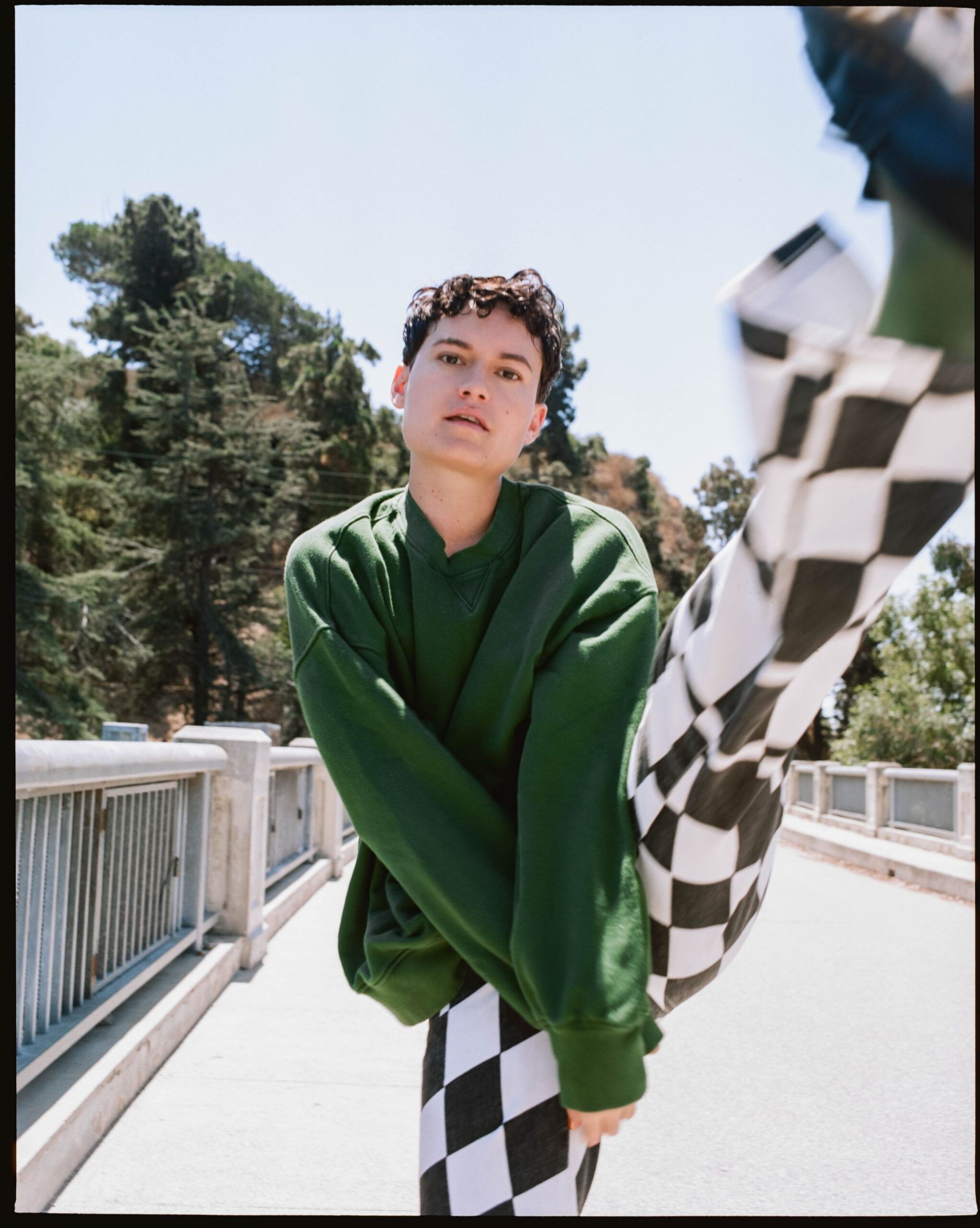
MUTT is in theatres now.
Interview Kelsey Barnes
Photography P. Mastro
Grooming Shy Elizabeth



